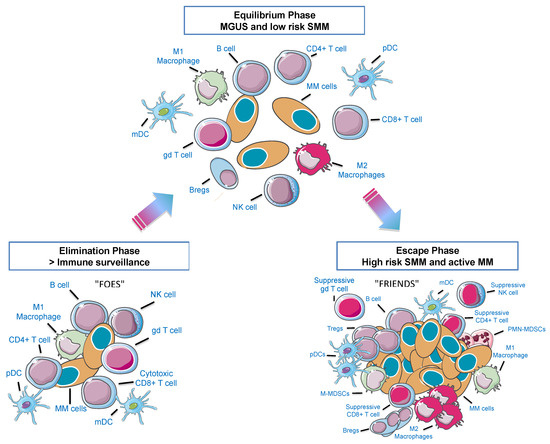Cancers, Vol. 13, Pages 625: The Immune Microenvironment in Multiple Myeloma: Friend or Foe?
Cancers doi: 10.3390/cancers13040625
Authors: Raquel Lopes Joana Caetano Bruna Ferreira Filipa Barahona Emilie Arnault Carneiro Cristina João
Multiple myeloma (MM) is one of the most prevalent hematological cancers worldwide, characterized by the clonal expansion of neoplastic plasma cells in the bone marrow (BM). A combination of factors is implicated in disease progression, including BM immune microenvironment changes. Increasing evidence suggests that the disruption of immunological processes responsible for myeloma control ultimately leads to the escape from immune surveillance and resistance to immune effector function, resulting in an active form of myeloma. In fact, one of the hallmarks of MM is the development of a permissive BM milieu that provides a growth advantage to the malignant cells. Consequently, a better understanding of how myeloma cells interact with the BM niche compartments and disrupt the immune homeostasis is of utmost importance to develop more effective treatments. This review focuses on the most up-to-date knowledge regarding microenvironment-related mechanisms behind MM immune evasion and su ppression, as well as promising molecules that are currently under pre-clinical tests targeting immune populations.



No comments:
Post a Comment